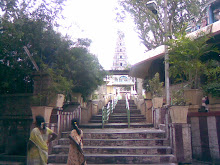Dr Krishnasamy feels Jallikattu is a localised sport. So is hockey but why is it called the national sport.
What is Tamilnadu renowned for? It is for agriculture and irrigation, administration and literature, valour and rule of law.
Without agriculture, there is no need for administration and revenue and for laws to be framed and ruling structures to be created.
For agriculture, the bull is the basic element and the people all over the state would have probably played with the bulls in order to exhibit their prowess. It is possible that the rural society had become corrupted by manudharma and that the workers were not allowed to participate in the sport. It could have become a way for the landlords to portray their heroic qualities. The entire population will not be able to play the sport.
At the same time, the job of the agricultural worker is the most fundamental to the entire economy. Without the worker, there is no society.
When there is war, every member of society will be recruited to make up the army. The General will lead but without an army, there is no general.
If jallikattu is being used by some communities to portray themselves as the dominant communities from the previous eras, it is a major problem.
But, it cannot be diminished as being an isolated sport. At some point, every body would have participated in the sport before the population became bigger and before there were intrusions from outside beginning around 500 AD.
After that, the communities at the top of the administration and land revenue faced severe pressure and would have relied on all means possible to retain their hold in society.
However, before 500 AD, the people lived without too much of trouble and were a simple and cohesive society. We did not have horses then. It was probably all about the bulls at that time.
Even today, the problem lies in the sanction that is provided by the brahmins in the form of providing a structure where they sit at the top and where the rest are arranged in descending order.
If the brahmin walks out of the temples, and becomes an auditor, army man, engineer, as many brahmins have become, this problem would be solved. But, instead, the brahmin files cases in court to retain control of the temples, and also wins judgements from the brahminised judiciary. The entire society is kept imprisoned by this desire of the brahmin to retain the feudal position.
As societies gradually change, all people will get the chance to do things that others have been doing. While only the landlord had cars, nowadays almost anyone owns a car. Likewise, it is with land too. It will be so with respect to jallikattu too and with the priesthood too. At least with jallikattu, there is no sanctioned rule that only a certain community must play the sport.
What is Tamilnadu renowned for? It is for agriculture and irrigation, administration and literature, valour and rule of law.
Without agriculture, there is no need for administration and revenue and for laws to be framed and ruling structures to be created.
For agriculture, the bull is the basic element and the people all over the state would have probably played with the bulls in order to exhibit their prowess. It is possible that the rural society had become corrupted by manudharma and that the workers were not allowed to participate in the sport. It could have become a way for the landlords to portray their heroic qualities. The entire population will not be able to play the sport.
At the same time, the job of the agricultural worker is the most fundamental to the entire economy. Without the worker, there is no society.
When there is war, every member of society will be recruited to make up the army. The General will lead but without an army, there is no general.
If jallikattu is being used by some communities to portray themselves as the dominant communities from the previous eras, it is a major problem.
But, it cannot be diminished as being an isolated sport. At some point, every body would have participated in the sport before the population became bigger and before there were intrusions from outside beginning around 500 AD.
After that, the communities at the top of the administration and land revenue faced severe pressure and would have relied on all means possible to retain their hold in society.
However, before 500 AD, the people lived without too much of trouble and were a simple and cohesive society. We did not have horses then. It was probably all about the bulls at that time.
Even today, the problem lies in the sanction that is provided by the brahmins in the form of providing a structure where they sit at the top and where the rest are arranged in descending order.
If the brahmin walks out of the temples, and becomes an auditor, army man, engineer, as many brahmins have become, this problem would be solved. But, instead, the brahmin files cases in court to retain control of the temples, and also wins judgements from the brahminised judiciary. The entire society is kept imprisoned by this desire of the brahmin to retain the feudal position.
As societies gradually change, all people will get the chance to do things that others have been doing. While only the landlord had cars, nowadays almost anyone owns a car. Likewise, it is with land too. It will be so with respect to jallikattu too and with the priesthood too. At least with jallikattu, there is no sanctioned rule that only a certain community must play the sport.

.jpg)
No comments:
Post a Comment